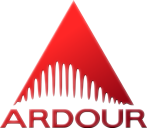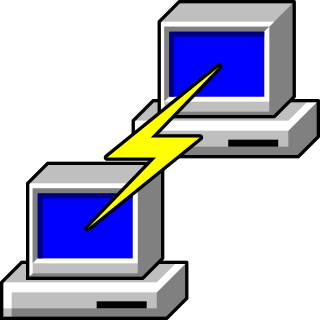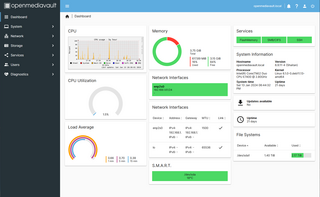
Vim is a free and open-source, screen-based text editor program. It is an improved clone of Bill Joy's vi. Vim's author, Bram Moolenaar, derived Vim from a port of the Stevie editor for Amiga and released a version to the public in 1991. Vim is designed for use both from a command-line interface and as a standalone application in a graphical user interface. Since its release for the Amiga, cross-platform development has made it available on many other systems. In 2018, it was voted the most popular editor amongst Linux Journal readers; in 2015 the Stack Overflow developer survey found it to be the third most popular text editor, and in 2019 the fifth most popular development environment.

Xfce or XFCE is a free and open-source desktop environment for Linux and other Unix-like operating systems.

Ardour is a hard disk recorder and digital audio workstation application that runs on Linux, macOS, FreeBSD and Microsoft Windows. Its primary author is Paul Davis, who was also responsible for the JACK Audio Connection Kit. It is intended as a digital audio workstation suitable for professional use.
Irrlicht is an open-source game engine written in C++. It is cross-platform, officially running on Windows, macOS, Linux and Windows CE and due to its open nature ports to other systems are available, including FreeBSD, Xbox, PlayStation Portable, Symbian, iPhone, AmigaOS 4, Sailfish OS via a Qt/QML wrapper, and Google Native Client.
Secure copy protocol (SCP) is a means of securely transferring computer files between a local host and a remote host or between two remote hosts. It is based on the Secure Shell (SSH) protocol. "SCP" commonly refers to both the Secure Copy Protocol and the program itself.

PuTTY is a free and open-source terminal emulator, serial console and network file transfer application. It supports several network protocols, including SCP, SSH, Telnet, rlogin, and raw socket connection. It can also connect to a serial port. The name "PuTTY" has no official meaning.

The KDE Advanced Text Editor, or Kate, is a source code editor developed by the KDE free software community. It has been a part of KDE Software Compilation since version 2.2, which was first released in 2001. Intended for software developers, it features syntax highlighting, code folding, customizable layouts, multiple cursors and selections, regular expression support, and extensibility via plugins. The text editor's mascot is Kate the Cyber Woodpecker.
Altap Salamander is a freeware orthodox file manager for Microsoft Windows, originally inspired by Norton Commander. In contrast to several other file managers, it has a context aware user interface hiding complexity – for instance, the bottom function list changes on press of modifier keys, just showing the currently available hotkey function set.
This article provides basic comparisons for notable text editors. More feature details for text editors are available from the Category of text editor features and from the individual products' articles. This article may not be up-to-date or necessarily all-inclusive.

WinSCP is a file manager, SSH File Transfer Protocol (SFTP), File Transfer Protocol (FTP), WebDAV, Amazon S3, and secure copy protocol (SCP) client for Microsoft Windows. The WinSCP project has released its source code on GitHub under an open source license, while the program itself is distributed as proprietary freeware.
The following tables compare general and technical information for a number of notable file managers.
An SSH client is a software program which uses the secure shell protocol to connect to a remote computer. This article compares a selection of notable clients.

Code::Blocks is a free, open-source, cross-platform IDE that supports multiple compilers including GCC, Clang and Visual C++. It is developed in C++ using wxWidgets as the GUI toolkit. Using a plugin architecture, its capabilities and features are defined by the provided plugins. Currently, Code::Blocks is oriented towards C, C++, and Fortran. It has a custom build system and optional Make support.
This article compares computer software tools that compare files, and in many cases directories or folders, whether it is their main purpose or as part of more general file management.
The following tables list notable software packages that are nominal IDEs; standalone tools such as source-code editors and GUI builders are not included. These IDEs are listed in alphabetic order of the supported language.
An SSH server is a software program which uses the Secure Shell protocol to accept connections from remote computers. SFTP/SCP file transfers and remote terminal connections are popular use cases for an SSH server.

Sublime Text is a text and source code editor featuring a minimal interface, syntax highlighting and code folding with native support for numerous programming and markup languages, search and replace with support for regular expressions, an integrated terminal/console window, and customizable themes. Available for Windows, macOS, and Linux, its functionality can be expanded with plugins written in Python. Community-contributed plugins can be downloaded and installed via a built-in Package Control system, or written by the user via a Python API. Sublime Text is proprietary software, but can be downloaded for free and used as an evaluation version with no time limit.

OpenMediaVault (OMV) is a free Linux distribution designed for network-attached storage (NAS). The project's lead developer is Volker Theile, who instituted it in 2009. OMV is based on the Debian operating system, and is licensed through the GNU General Public License v3.
CopSSH is an implementation of OpenSSH for Windows. CopSSH offers both SSH client and server functionality and can be used for remote administration of Windows systems. CopSSH contains DLLs from the Cygwin Linux environment and a version of OpenSSH compiled from Cygwin. An administration GUI is also provided as of version 4.0.0.







